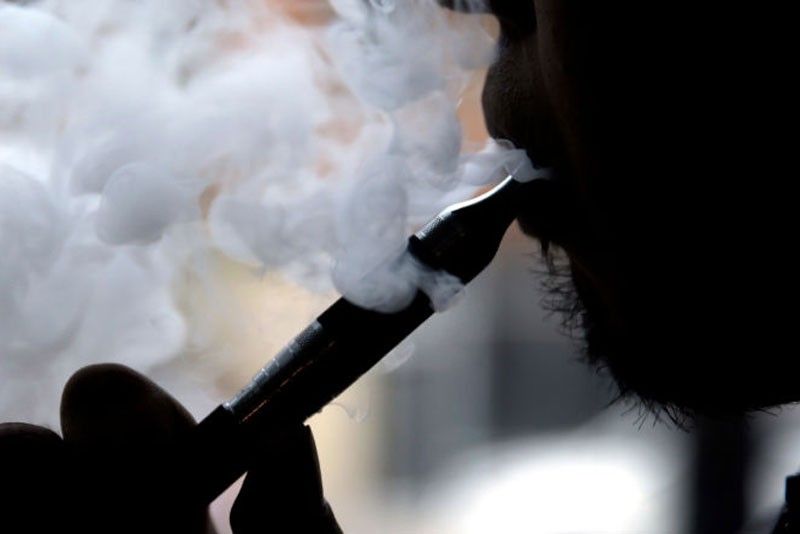DOF, DOH eye regulation for e-cigarettes

MANILA, Philippines — The Department of Finance (DOF) and the Department of Health (DOH) are planning to come up with regulations this year to control the importation and sale of electronic cigarette products in the country, according to top officials.
In a press briefing late Friday, Finance Secretary Carlos Dominguez said both agencies are now studying how to regulate the e-cigarette industry amid plans of cigarette companies to introduce new technologies and devices to the Philippine market.
“I got a letter from one of the companies saying that they are going to be introducing that here and we are in conversation with the DOH on how to handle this,” Dominguez said.
Electronic cigarettes or electronic nicotine delivery systems include vaping and “heat-not-burn” devices.
The finance chief said there is a need to control the sale of these types of products as they seek to entice more people to start smoking, especially the youth.
“I understand that in other countries they have produced products that taste like mango, taste like candy and I think that is something that we have to address because apparently that is designed to entice young people to start the nicotine habit,” he said.
Dominguez said both agencies are currently exploring different approaches for the regulation of the e-cigarettes in the country.
“We have to talk to (the DOH) because there’s science involved here. There are many arguments. Number one, maybe you should ban it all together, other countries have done that, Singapore I think banned all. That’s one approach. The other approach is you tax it. Why will you tax it? Because it still affects your health. That’s another approach. Then others are saying you tax it less because it affects your health less, but we’re not sure,” he said.
Currently, there is an existing regulation to manage the importation of electronic cigarette products, but Health Secretary Francisco Duque said this issuance has already been overtaken by advancements in technology.
“Actually there was an administrative order issued in 2014, but once we undertook a review on this, it looks like it’s been overtaken by events and the vaping and other electronic delivery systems for both nicotine and non-nicotine products. The 2014 AO cannot address all these new technological developments,” he said.
As such, Duque said the Food and Drug Administration (FDA) has been tasked to draft a new administrative order for the electronic nicotine and non-nicotine delivery system.
“In no time, we will come up with the draft implementing rules and regulations…probably in three to six months’ time,” he said.
In the meantime, Dominguez said the government will determine if the existing AO would be enough to regulate the entry of electronic cigarettes.
“At the moment there are very few regulations covering the importations of these products so we are going to review it to see if in fact they are enough to keep them out or to start regulating them,” the finance secretary said.
The Philippine government is currently intensifying its efforts to reduce the prevalence of smoking in the country.
These include the passage of Senate Bill 1599, which seeks to almost double tobacco excise taxes to P60 per pack.
Based on simulations developed jointly by the DOF, DOH and World Health Organization, the bill would encourage about 3.2 million Filipinos to quit smoking, and help avert 713,000 deaths.
The DOF said this reform, as well as increases in the excise tax of alcoholic beverages are required to fund the Universal Health Care program. Without these, the agency said the program would have a funding gap of as much as P62 billion in the first year of its implementation.
- Latest
- Trending





























